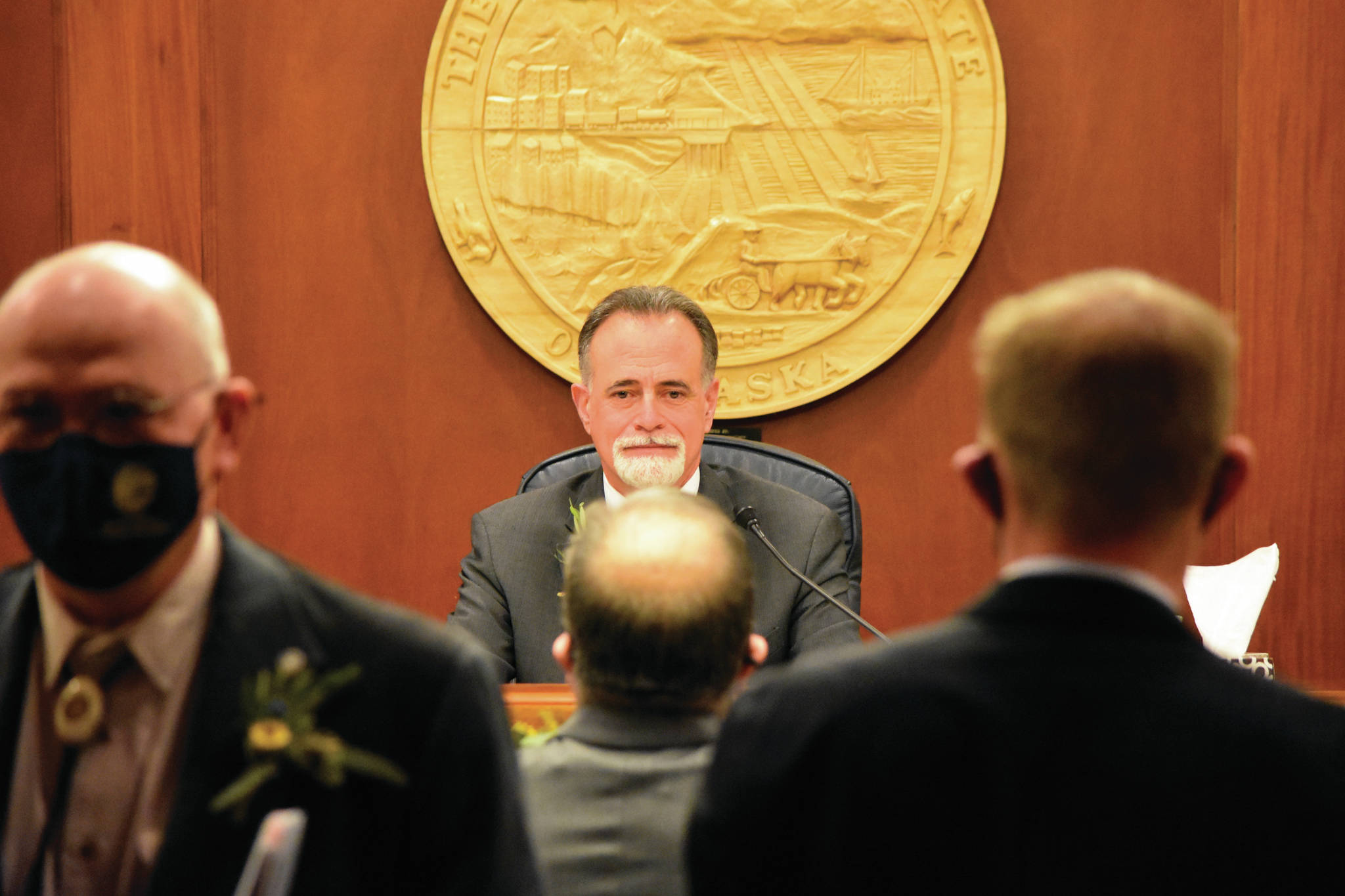With less than a month to go until the end of the 32nd Alaska Legislature’s first regular session, some bills sponsored by local lawmakers are closer to becoming law than others.
After getting off to a sluggish start due to an inability to organize, lawmakers in the Alaska House were able to receive committee assignments and introduce legislation later in the game than the Senate.
Rep. Ben Carpenter, R-Nikiski, had sponsored four bills as of Friday. His H.B. 175 drew statewide attention and multiple co-sponsors after it was introduced earlier this month. That bill claims to “protect” the “immunization rights” of Alaskans by stating that employers cannot require employees to get the COVID-19 vaccine. Five other House representatives have signed on as co-sponsors since the legislation was introduced, including Rep. Sarah Vance, R-Homer, and Rep. Ron Gillham, R-Kenai.
Of Carpenter’s four bills, one — H.B. 124 — had a committee hearing scheduled for Tuesday afternoon.
In his first session representing Kenai, Rep. Ron Gillham had sponsored six bills as of Friday. One, H.B. 107, would give free hunting and sport fishing licenses to veterans and active-duty members of the U.S. military or the U.S. Coast Guard who live in Alaska. Another, H.B. 136, would name a bridge planned for Cooper Landing as part of the Cooper Landing Bypass Project after U.S. Rep. Don Young, who is the longest-serving Republican congressman in U.S. history. That bill was most recently referred to the House Transportation Committee. Other bills sponsored by Gillham address protections for emergency responders and the recall of elected officials, among others.
None of Gillham’s bills had committee hearings scheduled as of Friday evening.
Of the central peninsula’s three representatives in Juneau, the bills of Sen. Peter Micciche, R-Soldotna, have advanced the farthest. Two have been in the works for years.
S.B. 29 attempts to alleviate tensions between eastern Cook Inlet’s commercial set net fisherman and other fishing user groups on the Kenai and Kasilof Rivers by reducing the number of set netters in the east side fishery. Specifically, the bill would establish a voluntary permit buy-back program as a way for set net fishermen to “fairly exit” the fishery or reinvest in remaining operations, according to Micciche’s sponsor statement.
The program would only become effective after an affirmative election held among permit holders. If approved, the program would use a lottery-style system to retire fishing permits. A permit holder would need to apply for the program and then 200 permits would be drawn to determine retirement order. When a permit became retired, the waters where the permit was fished would be closed to future commercial fishing.
Micciche said that surveys of set net fishermen showed that 95% were interested in the concept of the program. Implementing such a program, Micciche said, would result in a more viable commercial fishery and more fish available for in-river users.
Another of Micciche’s bills has been nine years in the making.
S.B. 9 would overhaul Alaska’s alcohol regulations by “modernizing” state statutes governing the Alcoholic Beverage Control Board. In his sponsor statement, Micciche said the bill will allow the board to function more efficiently in considering how to regulate Alaska’s alcohol industry in a way that promotes public health and safety while promoting economic growth.
Specifically, the bill would reorganize Title 4 statutes such that the rights and obligation of licensees are more clearly defined, Title 4 offense penalties are restructured and the organization of statutes is more logical, Micciche said.
In all, Micciche estimates that more than 16,000 hours of work has gone into the legislation, which has a hearing before the Senate Finance Committee on Monday morning.
More information about local lawmakers, their legislation and the Alaska Legislature can be found at akleg.gov.
Reach reporter Ashlyn O’Hara at ashlyn.ohara@peninsulaclarion.com.

